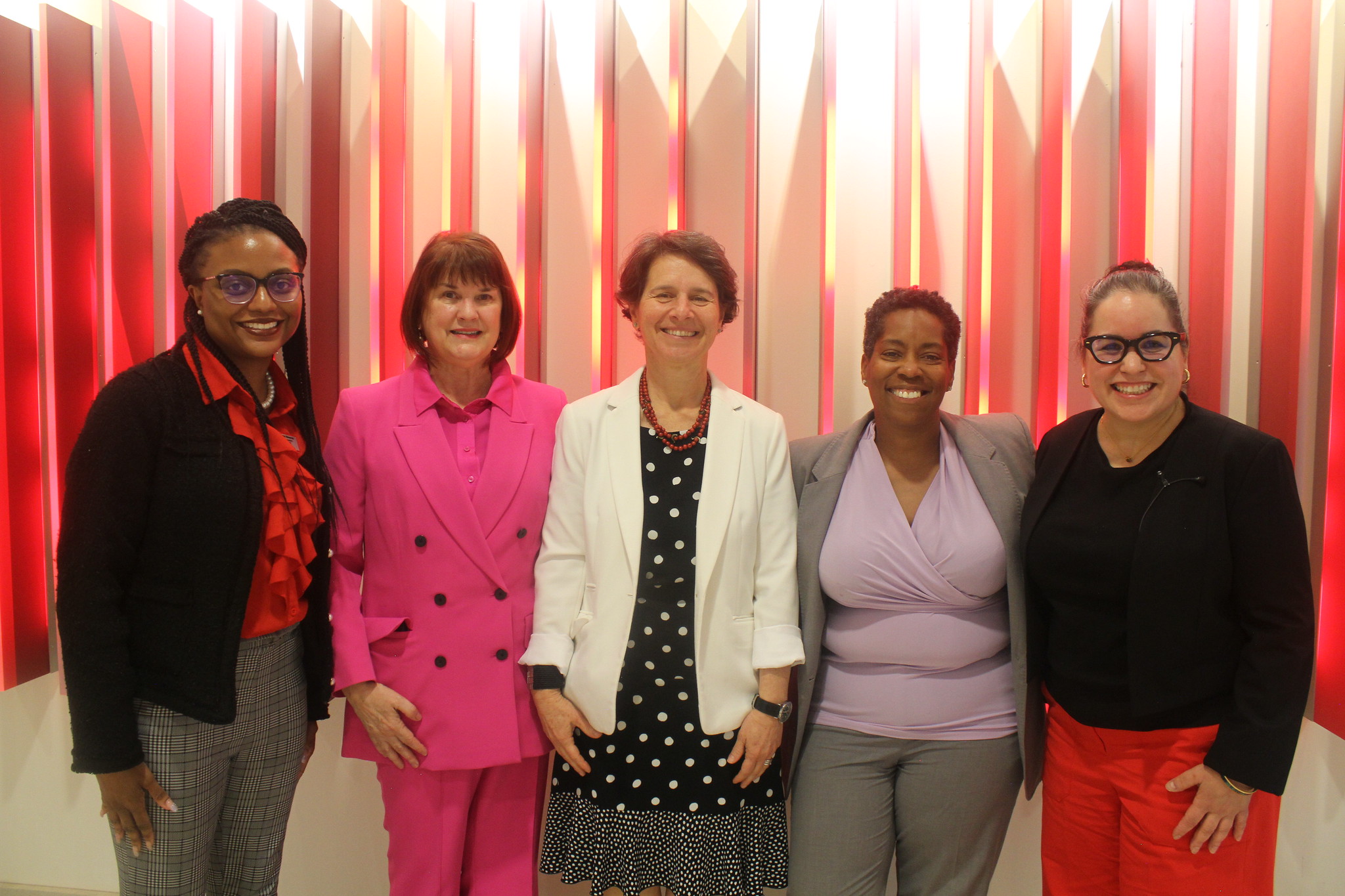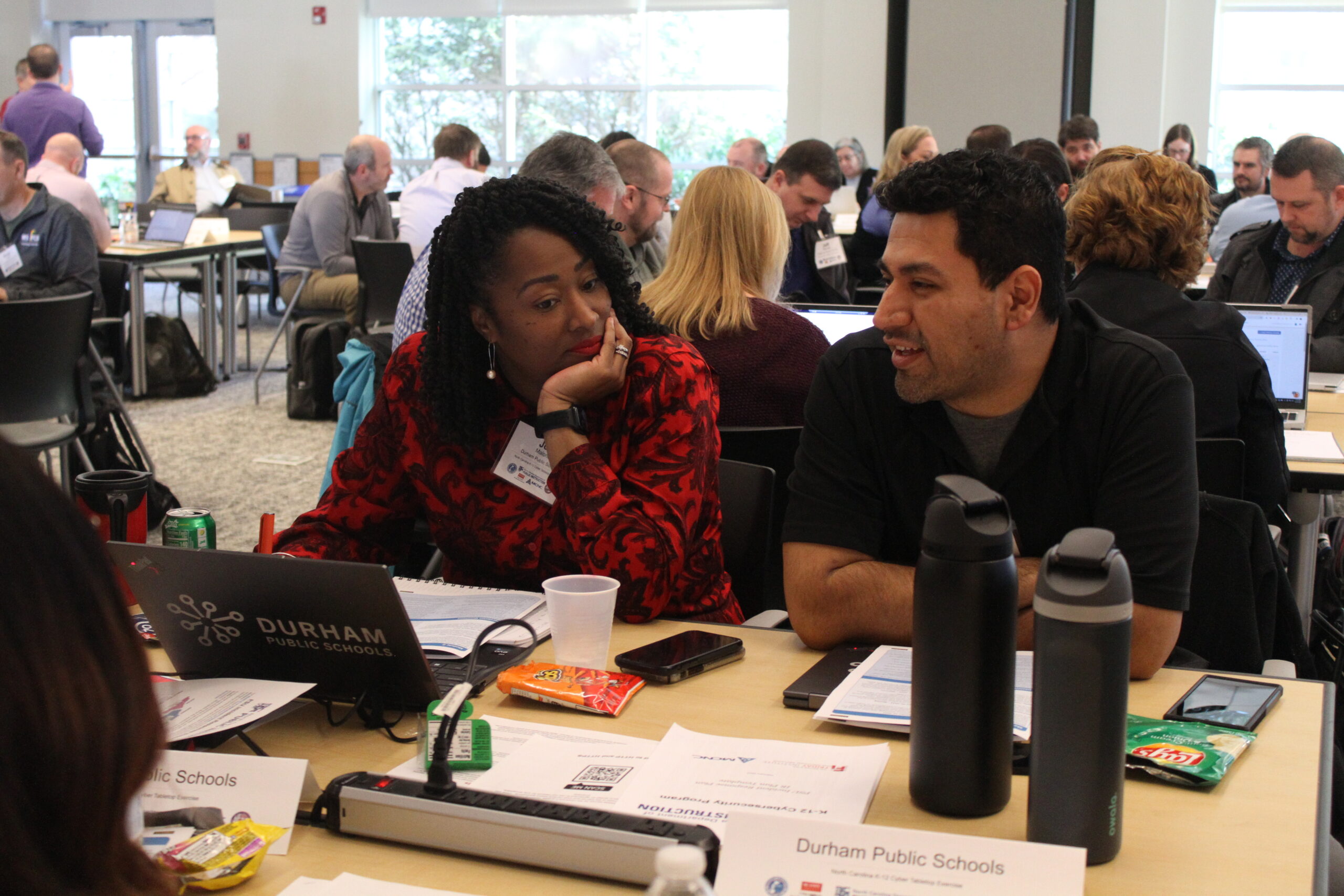Friday Institute’s Williams, Edwards Continue Work in Educational Equity Through STEM-Focused Grant-Funded Project
Using a three-year, $178,132 Burroughs Wellcome grant for a project titled “TEXplore Summer Enrichment and Saturday Academy Program,” a research team from the Friday Institute for Educational Innovation and NC State Wilson College of Textiles aims to provide meaningful enrichment opportunities for under-represented students (African American/Black, Hispanic/Latino or Native American) from economically disadvantaged backgrounds that can both develop their STEM identities and broaden their understanding of and access to STEM careers in the textile industry.
Delisha Hinton, M.Ed., associate director of student services at the NC State Wilson College of Textiles, will serve as principal investigator, Braska Williams, director of the North Carolina Mathematics and Science Education Network Pre-College Program (NC-MSEN PCP) at the Friday Institute, will serve as the grant’s co-principal investigator and Callie Edwards, Ph.D., associate director of the Program Evaluation and Education Research (PEER) Group who designed the program’s evaluation plan, will execute the evaluation plan with PEER Group graduate research assistant Amanda MacCormac.
The TEXplore Summer Enrichment and Saturday Academy Program (TEXplore) project will provide hands-on learning experiences in diverse, textile-related STEM disciplines for a cohort of approximately 30 rising seventh and eighth grade students from Gaston and Catawba counties, in partnership with STEM-focused educators from Gaston College, Catawba Valley Community College and the NC-MSEN PCP.
“I’m incredibly excited about this opportunity to support underserved students in Catawba and Gaston counties—areas of the state that I personally have deep connections to,” said Williams. “My wife was born and raised in Gastonia, North Carolina, where most of her immediate and extended family members still live. The majority of which worked, or still work, in textile plants. My wife was the first in her family to graduate from a four-year university and is the only one who has left Gaston County. I’m thrilled to be part of a team that will help the next generation of students to ‘Think and Do’ bigger things in this part of the state.”
TEXplore activities will occur for one week during the summer and periodically throughout the academic year on Saturdays. Over the three-year program period, students will learn about three unique STEM disciplines in the textile industry by studying, applying and reinforcing scientific processing and investigative skills. Through engaging and fun laboratory experiments and demonstrations at the NC State Wilson College of Textiles, students will also have the opportunity to work with lab equipment, give science presentations and develop their writing skills. Science and mathematics goals will be reinforced during the academic year on Saturdays by Gaston and Catawba County teachers, which will help to increase student engagement for more challenging science and mathematics topics based on its connection to specific STEM-based textile focus areas each year.
For a decade, Edwards has studied, partnered with and advocated for historically underrepresented and underserved populations in health, education and science, technology, engineering and mathematics (STEM) fields. She knows firsthand how critical STEM identity development is for student success and is dedicated to developing pathways toward educational equity.
“I’m thrilled to be a part of this incredible project because it combines three of my passions—educational equity, STEM education and program evaluation,” Edwards says. “Being the project’s evaluator enables me to help the principal investigator assess and improve the program’s effectiveness, as well as mentor graduate research assistants on our PEER team. It’s a triple threat in the best way possible.”
TEXplore also builds on work that Edwards has done in recent years as a program evaluator at the Friday Institute with her PEER Group team, which provides evaluation, research and technical assistance to answer the questions that matter most to their education partners. Since 2009, they have effectively executed over $15 million in research and evaluation grants and contracts.
- Categories:


